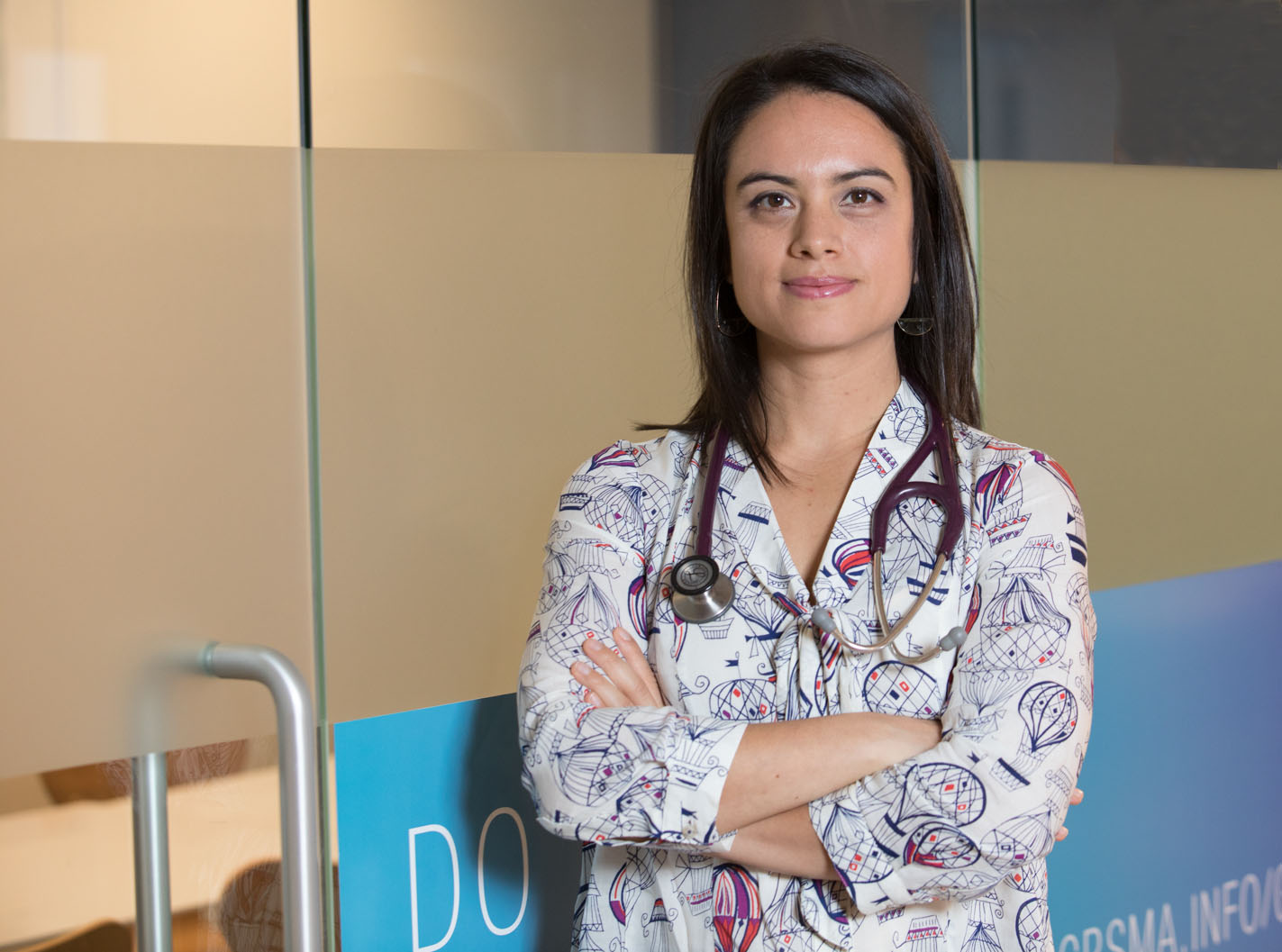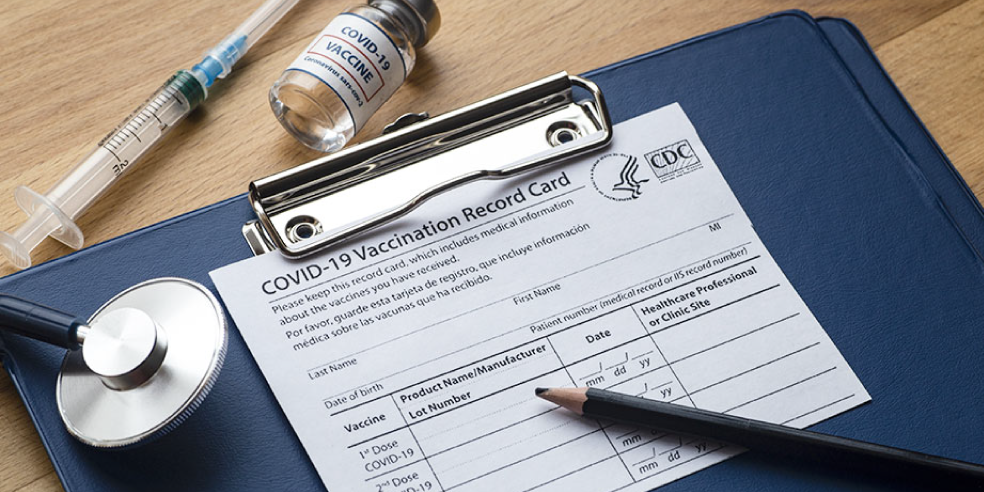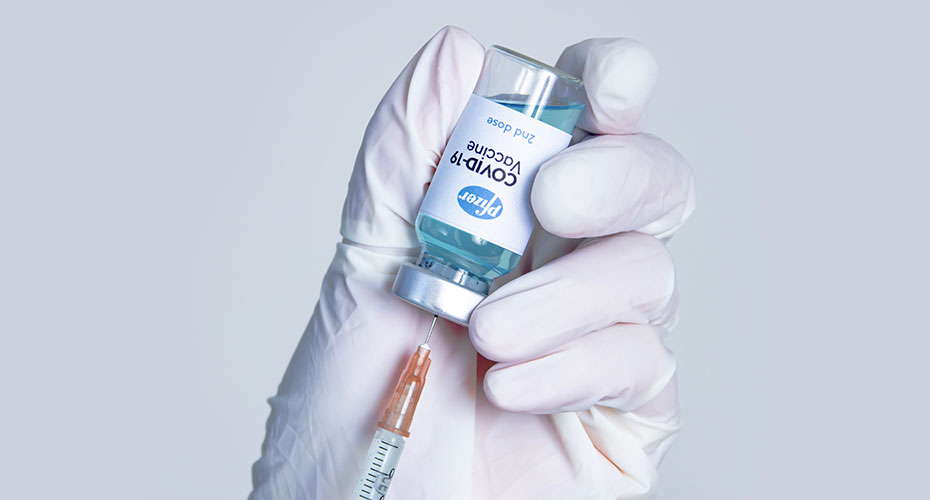Dec 22, 2020
What you need to know about the Pfizer vaccine
In a major advance in the fight against the pandemic, hundreds of millions of people in the U.S. are getting vaccinated against COVID-19.
The U.S. Food and Drug Administration has approved vaccines made by Pfizer/BioNTech and Cambridge, Mass.-based Moderna, and has given emergency use authorization to a vaccine made by Johnson & Johnson. The vaccines are considered fully effective after the final dose, and all three are covered by health plans, including Blue Cross Blue Shield of Massachusetts, with no out-of-pocket cost.
Here is what you need to know about the Pfizer vaccine:
How does the Pfizer/BioNTech vaccine work?
Vaccines, the greatest advancement of modern medicine, safely mimic viral or bacterial infections and train the body’s own natural immune system to quickly and effectively fight a future infection. If a vaccine recipient is later infected with the virus or bacteria, the immune system will be equipped to fight it off and prevent illness.
Most vaccines use a live or weakened virus or viral proteins to trigger the body's immune system.

Like the Moderna vaccine, the Pfizer vaccine uses a new, clever, and safe method to train your natural immune system: Rather than injecting an inactivated version of the whole virus or a piece of the virus, these vaccines sends a snippet of what is known as mRNA, or messenger RNA, into the body. The vaccine mRNA is only in your body temporarily — just long enough for its genetic instructions to tell some of your cells to generate an innocuous part of the coronavirus’s outer coating (called a “spike protein”), which then triggers the body’s natural immune response, including the production of antibodies to COVID-19.
"The vaccine mimics a harmless part of the infection—just enough of the virus for just a long enough time to train the immune system," said Dr. Mark Friedberg, a primary care physician and head of performance measurement and improvement at Blue Cross Blue Shield of Massachusetts. "It’s like the world’s quickest karate class: An '80s movie montage that turns you into a world-class fighter over an improbably short time period."
Messenger RNA vaccines do not contain live virus and cannot cause infection in anyone who is vaccinated. They also can’t alter anyone’s genes.
Researchers have been studying mRNA for potential vaccines against HIV and SARS since the 1990s, but the new COVID vaccines mark the first mRNA vaccines approved for use in humans, said Desiree Otenti, senior director of medical policy and program implementation for Blue Cross Blue Shield of Massachusetts.
“We have other medications on the market that use this science now,” she said, noting successful cancer treatments utilize mRNA.
The components of the vaccine have been tried in human populations before, “and we know they are safe," Otenti added. “Although the vaccines are new and the way they’ve been manufactured is new, the key components aren't.”

Vaccination is free, and everyone is now eligible
Read more about how to sign up for a COVID-19 shot – and get a ride, if you need one

How effective is it?
Data on the Pfizer vaccine – given in two doses 21 days apart – has been extremely promising, Otenti said. The vaccine is available for people ages 5 and up.
A peer-reviewed study published in the New England Journal of Medicine found after a diverse group of 21,720 volunteers received two injections of the vaccine, there were only eight cases of COVID-19. The same number received a placebo, and within that group there were 162 cases of COVID-19 post-injection.
The vaccine was found 95% effective at preventing COVID-19, the illness caused by the coronavirus.
The vaccine has minor side effects, which are signs of the natural immune system responding to the vaccine so that a future infection will be fought off quickly.
The most frequently experienced side effects are "short-term pain at the injection site, fatigue, and headache,” the authors wrote. Smaller numbers of volunteers experienced short-term chills, aches and, in rare cases, a fever.
More research and monitoring will be done to test for long-term effects, along with how the vaccine affects pregnant women and certain immunocompromised populations.
Takeaway: A life-saving advancement
FDA emergency use authorization is given for treatment whose benefits greatly outweighs the risks, Otenti notes. The coronavirus has infected millions worldwide, and in the U.S., more than 300,000 have died.
The bottom line is this: The risk of the vaccine is far lower than the risk of getting COVID.
PHOTO OF DESIREE OTENTI BY MICHAEL GRIMMETT

